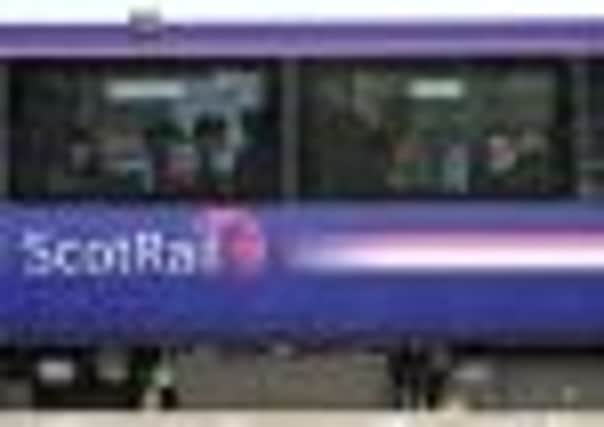ScotRail boss pockets £54,000 rise in pay and perks as passengers hit by fare hikes


• £54k pay increase for “fat cat controller” criticised as rail fares see January hike
• Rise for ScotRail managing director comes despite 3.9 per cent increase in ticket prices
Advertisement
Hide AdAdvertisement
Hide AdStephen Montgomery was awarded the hike in his package of pay and perks as the cost of train tickets increased by 3.9 per cent this month.
First ScotRail insists that it comes at a time of “record” passengers numbers and service levels. But Mr Montgomery, the firm’s managing director, was branded a “fat cat controller” as it emerged that he takes home more than twice the salary of the Prime Minister in both pay and perks.
Lorraine Ward, assistant general-secretary for the TSSA rail union in Scotland, said: “It is absurd that Stephen Montgomery should be earning more than twice the salary of the Prime Minister. Mr Montgomery has joined a long list of rail bosses who have turned themselves into fat cat controllers at the passengers’ expense.”
Despite a fine of more than £370,000 from Transport Scotland for failing standards, and a public apology from Mr Montgomery for numerous delays, the ScotRail boss’s remuneration package rose from £279,000 in 2011 to £333,000 last year, which includes bonuses, a car allowance and National Insurance contributions. The firm, which is owned by Aberdeen-based FirstGroup, received more than £300 million in taxpayer subsidies last year, when Mr Montgomery was forced to apologise for delays.
It also emerged that Tim O’Toole, head of FirstGroup, stands to pick up share awards of nearly £1m, on top of a basic salary £846,000.
ScotRail prices, and those south of the Border, have pushed up the cost of a family return from Glasgow to London in some cases to over £1,000, while a rush-hour fare between Glasgow and Dundee is £26.30, meaning four adults would be cheaper sharing a cab at £90.
The firm was forced to pay its third year of fines for missing agreed targets on services including announcements, train information schemes and toilets. This was an improvement on the previous year and met standards in ten areas, including cleanliness and CCTV, but missed seven others. It was fined by Transport Scotland.
Mr Montgomery also issued a public apology last spring for delays between Glasgow and Ayrshire, as well as Renfrewshire and Inverclyde. More than one in four services during the previous year ran late.
Advertisement
Hide AdAdvertisement
Hide AdLabour MSP Richard Baker said: “Many people will question the decision to make these increases in remuneration of ScotRail’s senior executives at a time when Scots are struggling to make ends meet and when fares are increasing.
“Scottish Labour believes we need to look beyond the current arrangements for the running of our railways and look towards a not-for-profit model. This is something SNP ministers could do, but are failing to promote seriously.”
But a ScotRail spokesman said last night the remuneration package did not eat into the public subsidy “in any way”. He added: “It is also determined by a committee independent of the company. It takes into account personal as well as company performance, and levels for similar positions with comparable responsibility, skills, size and complexity.
“In recent years, ScotRail has seen record levels of customer service, performance and reliability, and attracted a record number of passengers – at 81.1 million – while running more than 2,300 services a day.”
It emerged last October that subsidies for ScotRail grew at a faster rate than south of the Border over the past three years. It prompted calls for the Scottish Government to cut the cost of the rail network. Government cash support for First ScotRail, which operates more than 95 per cent of passenger services in Scotland, has leapt by 37 per cent since 2009 to £305m.
The hike left taxpayers paying 11.4p for every kilometre travelled by a ScotRail passenger – up from 8.6p in 2009 – and is in contrast to the 16 private train operating companies which have seen overall subsidy levels reversed during the same period.